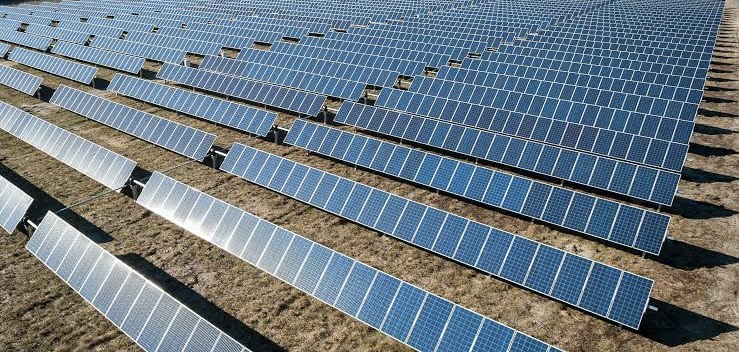With the opening of the 8 MW ambitious solar power facility, Ehoala Solar Park, Madagascar’s industrial operations will take a major step toward decarbonization. President Andry Rajoelina of Madagascar officially opened the solar factory, which is slated to expand further, in the southern city of Taolagnaro, also referred to as Fort-Dauphin. This project demonstrates Madagascar’s dedication to sustainable energy and fits in with larger international initiatives to use renewable energy sources to fight climate change.
The first phase of the Ehoala Solar Park, which was finished in late April, includes 14,640 solar panels with an 8MW electricity output. The solar farm will grow by an additional 6MW in the future second phase, and a 19-turbine wind farm will be added, adding an extra 16MW. This growth is about to significantly boost the park’s capacity, providing substantial renewable energy to local industries, particularly the QIT Madagascar Minerals (QMM) ilmenite mine, which is a major beneficiary of this clean energy initiative.
During the inauguration, President Rajoelina reaffirmed Madagascar’s goal of emerging as a resilient leader in tackling climate concerns, particularly in the industrial sector. “Madagascar aims to be a model of resilience in the face of climatic concerns, particularly in the industrial sector,” stated Rajoelina, emphasizing the solar park’s strategic significance for the country’s sustainable development goals in addition to its role in energy generation.
For Madagascar, where the International Energy Agency (IEA) reports that biofuels and wastes accounted for 85% of the country’s energy mix in 2019, with the remaining 11% coming from coal, hydropower, and oil products, the shift to renewable energy is essential. A major shift away from these conventional energy sources and toward more environmentally friendly and sustainable alternatives is symbolized by the Ehoala Solar Park. It establishes a standard for cutting emissions and improving sustainability in industrial processes, especially in the mining industry, which contributes significantly to the GDP of Madagascar.
The solar park project benefits the local community economically in addition to its environmental effects. It is anticipated to improve the standard of living for those living in Taolagnaro and the neighboring areas by fostering the development of skills and creating jobs. The project’s focus on sustainability extends to water and waste management, guaranteeing that the park’s advantages are all-encompassing and felt in different aspects of environmental and community health and offer a sustainable future to our fellow citizens,” he stated.
The Malagasy government’s commitment to this environmentally beneficial change was reiterated by President Rajoelina. “The government of Madagascar recognizes that initiatives to reduce the effects of climate change require the participation of a flexible sector. As a nation, we are committed to spearheading this change and demonstrating our determination to protect our territory.
The Ministry of Energy and Hydrocarbons, the National Environment Office, the Maritime and River Port Authority, and the Civil Aviation Authority of Madagascar are among the institutions and regulatory bodies that have collaborated in the development and management of the Ehoala Solar Park. By using an integrated strategy, the project is guaranteed to meet local energy requirements while also complying with international and national safety, environmental protection, and sustainable development criteria.



